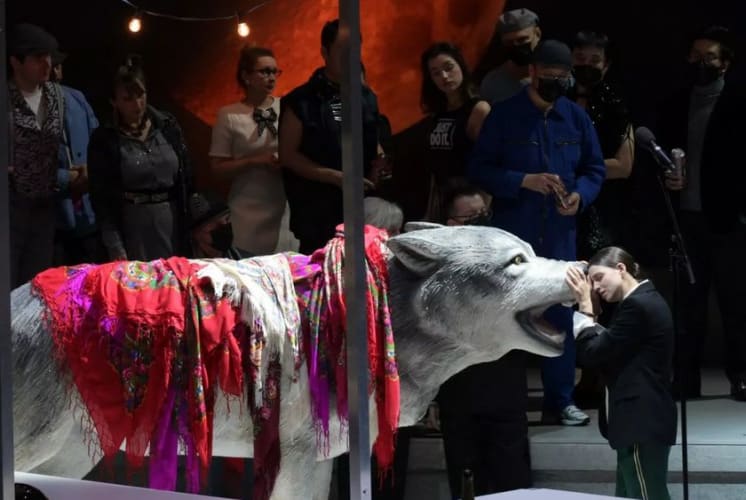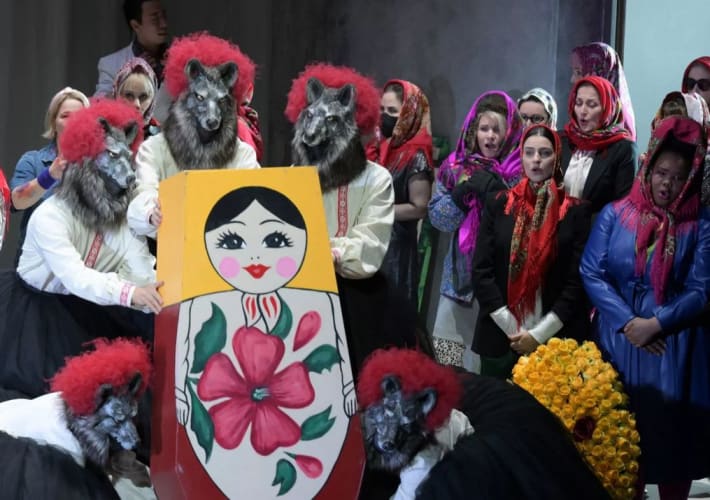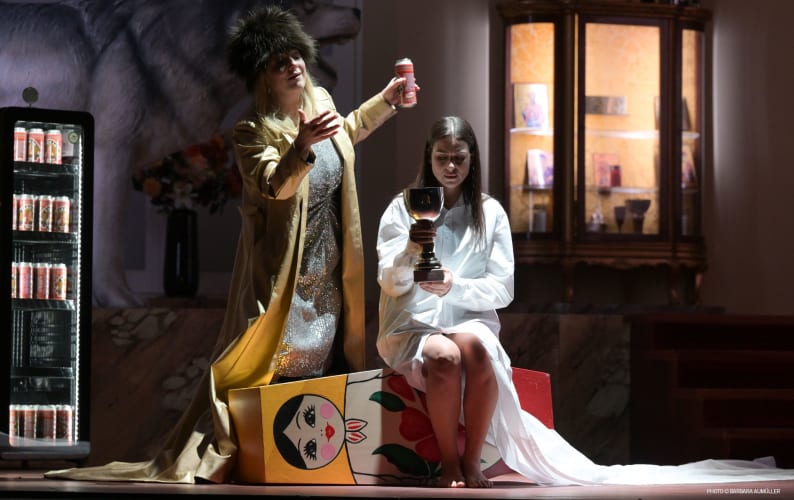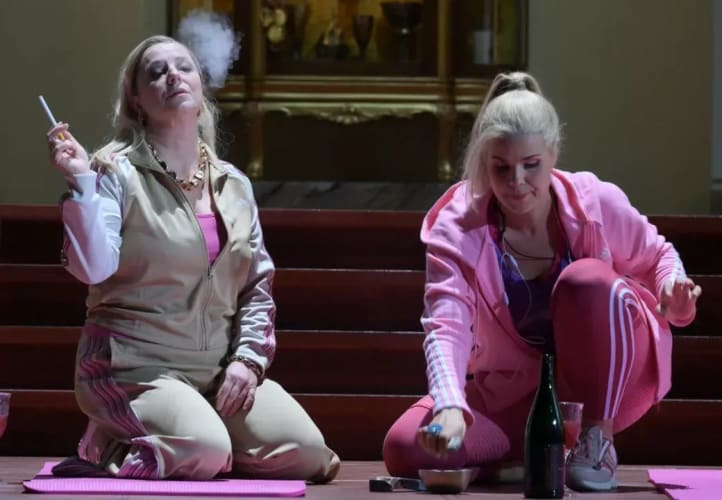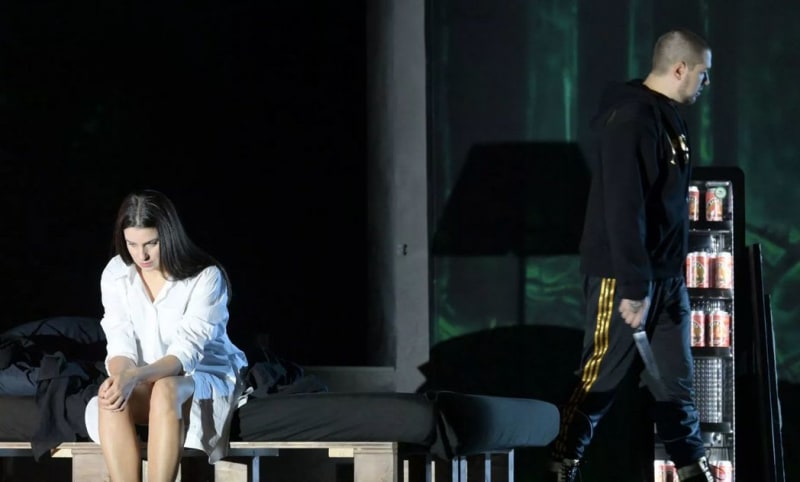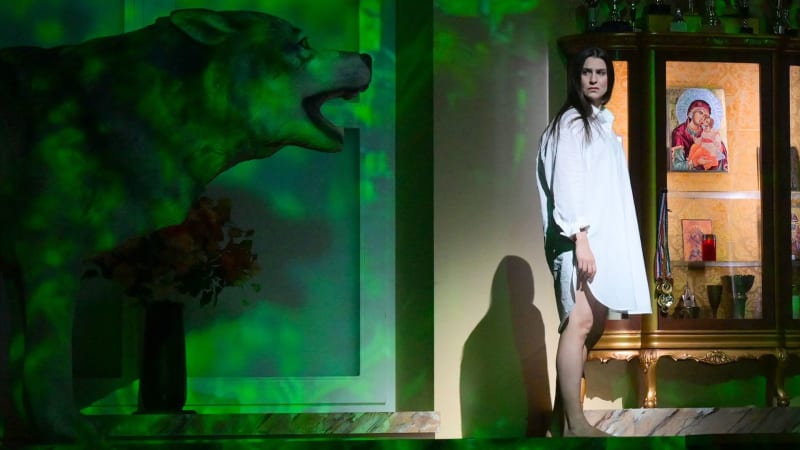The Enchantress was said to be Tchaikovsky’s favourite of his eleven operas, yet it proved a failure and was seldom revived. This rare performance gives an indication of the reasons for both those judgements.
Nastasya, known as Kuma, is referred to as an Enchantress because of her ability to charm, either through magical powers or force of personality. She loves Yuri, but is pursued by his father, Prince Nikita. She rejects the latter’s advances, but the Princess, Nikita’s wife, goaded by the puritanical deacon Mamirov, believes they are having an affair and poisons Kuma as she prepares to elope with Yuri. Driven mad by these events, Nikita kills both his wife and son.
Although originally set in mediaeval Russia, the story could be modern, particularly in the character of Kuma, a generous, free spirit who refuses to submit to a male tormentor. When in the title role of this modern production Asmik Grigorian says she is a witch, it is as a joke, making fun of those who believe in such things. The trouble is that this passionate and potentially dramatic plot is swamped within a verbose and unwieldy libretto, with too many minor characters, and which disposes of Kuma before the final scene.
Director Vasily Barkhatov presents the piece as a struggle between art and nature against sinister forces of oppression, but the result is a depressingly unattractive and incoherent production. Kuma is surrounded by avant-garde hangers-on in a cross between a village hall stage and a studio, while she, Yuri and the Princess are dressed mostly in exercise pants, as if the costume instruction was "Come as you are." Yuri is a boxer, who enters throwing shadow punches. How an enchantress could fall for this oik is beyond me.
As the piece progresses, the sets and furniture of studio and princely palace become interposed. No wonder Grigorian looks bemused, and she deserves better than to meet her end in a scene in which the only ornament is the backside of a wolf. The lighting is no better than the design—with performers often partly hidden in shadow. Either the effect is misconceived or mismanaged.
This was the first libretto Tchaikovsky commissioned himself, and possibly for that reason he expended great efforts on the score, which, if lacking a knock-out number, does contain some of his finest music, including a remarkable ‘decimet’ for ten voices plus chorus and a series of colourful duets, one unusually for mother and son, Claudia Mahnke (Princess) and Alexander Mikhailov (Yuri), then a pivotal one that develops the relationship between Yuri and Kuma.
As so often, the composer lavishes most attention on his tragic heroine. Grigorian, coming across as strong and fragile, charming amid the grunge, and sounding effortless throughout, shows why she has become such a favourite at Frankfurt Opera. Mikhailov has that distinctive Russian, light agile tenor voice, with smooth legato that he uses for nuanced interpretation of his conflicted character.
Pity Mahnke and Iain MacNeil as Nikita for their imposed stage actions. Mahnke’s mezzo has a luscious roundness to it and bass-baritone MacNeil is immediately muscular in tone, but I am more likely to remember the former having to perform stretching exercises in her jogging suit, and the latter having to feed a large, hungry Alsatian and wondering if it would bite his hand (it didn’t quite) or bark (it did).
David Pountney directed the opera for Naples in 2003, but the only version I know is a 1984 DVD from Nizhni Novgorod—where the story is set—beautifully sung but in an archly-conservative production in the old Russian style. It does at least retain something of the folksiness intended, and runs to two hours 37 minutes. The Frankfurt production by contrast is about 40 minutes longer and suffers from some plodding tempi in what is already a piece that would benefit from judicious cuts.
